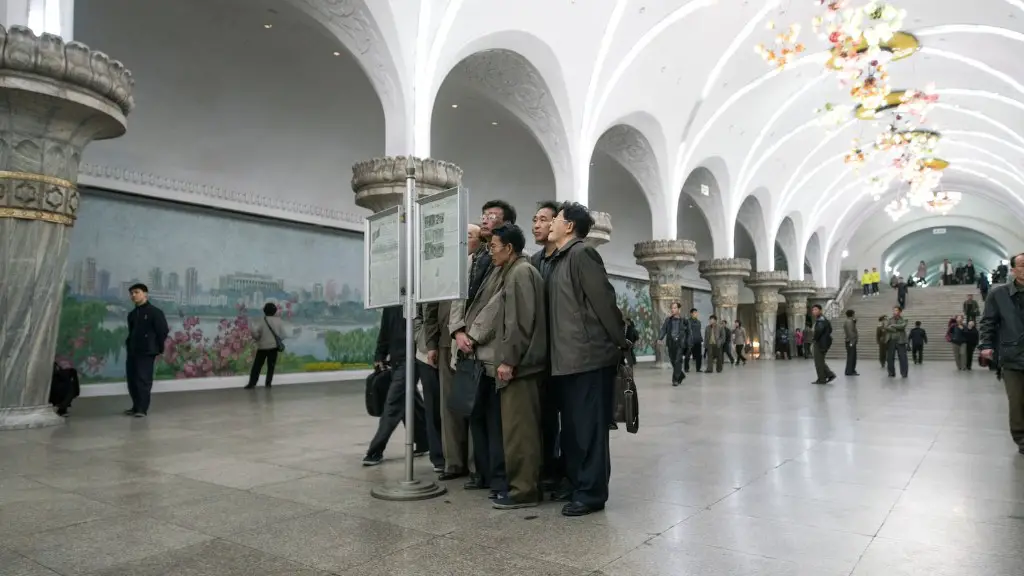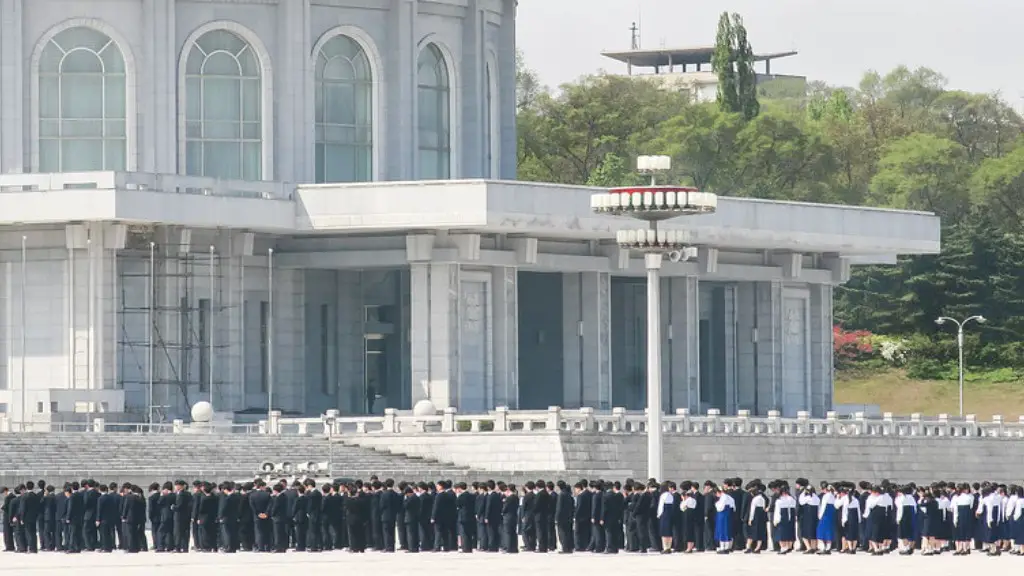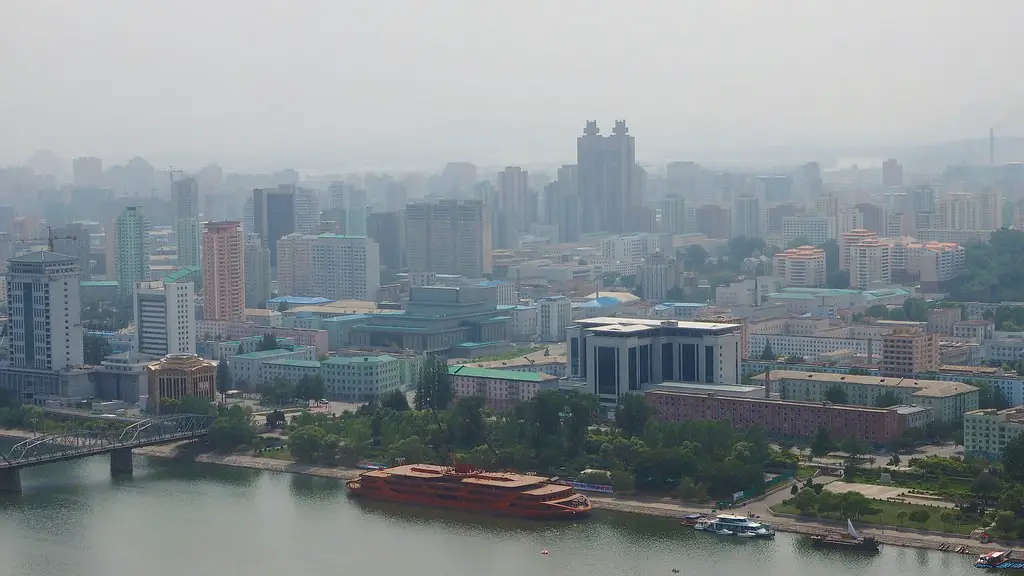For nearly seven decades, South and North Korea have been divided. The division resulted from the Cold War and the aftermath of the Korean War in 1953. The Korean War divided the Korean peninsula into two countries, North and South Korea, along the 38th parallel. Since then, North and South Korea have had limited contact and diplomatic relations, as both countries have different ideologies and governments. The question of whether the North and South will ever join forces is one that continues to generate much debate, with experts offering various perspectives on the issue.
Firstly, one reason why North and South Korea may never reunite is due to the administration and politics of the two countries. The governments of the two countries are fundamentally opposed. The two nations view each other as adversaries, with South Korea backing capitalism and democracy, while North Korea supports socialism and a one-party system of rule. Furthermore, the two countries have completely different leaderships. Kim Jong-un currently rules North Korea and Moon Jae-in is head of South Korea. This means that nationalistic emotions and interests will always prevent any actions which may potentially lead to reunification.
Secondly, even if both North and South Korea are to reunite, the process could be complex. The citizens have different political ideologies and they have assimilated into different cultures over the last 70 years. There would be much opposition to any suggested changes, particularly in terms of the government and economy as, likely, it would mean North Korea would have to open up to democracy and capitalism in order to unify. This means that the potential disruption of the two countries could be immense and could destabilize the entire region.
Thirdly, experts believe another major obstacle to reunification are the respective forces in the two countries. Both South and North Korea have significant military forces, which makes any potential unification difficult. South Korea’s military is helped by America, while North Korea’s army is backed by China. This hinders progress and cooperation between the two countries as both sides are eager to protect their own interests. Additionally, North Korea’s nuclear program and refusal to comply with certain international agreements also hinder dialogue and trust between the two countries and make reunification a challenge.
Lastly, there are some who believe that reunification is still possible. There have been some positive steps taken since the Korean War, including a number of inter-Korean summits and the implementation of a number of joint projects. South and North Korea have also agreed to denuclearize the Korean peninsula, and South Korea has agreed to increase economic ties with North Korea with the aim of stabilizing the region. In addition, the South Korean government has made it a priority to try to reach out to their neighbors in the North both politically and financially, in order to promote understanding and trust between the two nations.
Improving Relationships and Reconciliation
There is hope that the relationship and tension between North and South Korea can improve. By exchanging messages of understanding and reconciliation, such as in the 2018 inter-Korea summit, North and South Korea are taking steps towards reducing tension. Additionally, international organizations and foreign powers, such as China and the United States, are helping the two countries move towards peace and stability. China, in particular, has been instrumental in promoting dialogue and have been a mediating force between the two Koreas since the Korean War.
Furthermore, there have been bilateral talks between high-ranking officials from both sides. Through these talks, divisions and hostile policies of both countries as well as social and economic developments have been discussed. This has encouraged both sides to take a more reconciliatory approach towards issues regarding national security, denuclearization and economic growth. Despite certain constraints, there is still hope that the two countries can move closer to reunification if their respective citizens are willing to embrace their differences, and progress can be made.
Apart from the political backdrop, the economies of North and South Korea also must be taken into account. North Korea is relatively isolated, economically, with limited access to global markets. If North Korea were to reunify with the South, North Korea’s economy could potentially benefit from its larger neighbor. South Korea also has one of the largest economies in Asia, with an estimated gross domestic product (GDP) of $2.1 trillion. If the two countries were to join forces, their combined GDP would be one of the largest in Asia. However, the costs of unifying the two countries could be substantial, with both nations having to address issues such as the retirement systems, transportation, and the health care system. Both countries would also need to let go of some of the historical animosity between them in order for economic integration to be successful.
Social Landscape
Another important factor to consider is how reunification will affect the social landscape of the Korean peninsula. Since the Korean War, the two countries have developed different cultures, ideologies, and traditions. The differences between them are particularly evident in the younger populations. According to a survey by The World Values Survey, South Koreans are more likely to embrace individualism and possess a greater sense of identity than North Koreans. This gap might be difficult to bridge and is another obstacle towards reunification. However, the increasing mixing of people through business and travel between the two countries have helped lessen the disparities.
In spite of North Korea’s strict enforcement of censorship, North Korean youths have started to become more open to South Korean culture and norms. The impact of South Korean films, television shows and music on North Koreans, who have increased access to such entertainment via international networks, has been a noticeable shift in the North Korean youth’s behavior. Additionally, South Koreans have started to become more aware of North Korea and its culture and have started to be more accepting of the differences between the two cultures. This is an important step in the eventual reunification of the two countries.
Moreover, the differences between the two countries extends to language as well. South Korea’s language, Hangul, is taught in schools nationwide and is widely spoken in the South. North Koreans, on the other hand, are taught the two official languages of the country, Chosonmal and Hangul, both from the Korean branch of the Ural-Altaic language family. It will be important for both sides to come to common ground in terms of language, in order for peace and progress between the two countries.
How the Unified Nations Can Benefit
In addition to improved relations, reunification could potentially lead to several benefits for the Korean peninsular. Firstly, a unified Korea would have access to a larger set of resources, resulting in a stronger and more influential economy. This would mean that Korea could compete with some of the world’s top economies, such as the United States, China and Japan. Furthermore, Korea’s highly educated population, combined with the advanced technology of the South Korean economy, would be an asset to a newly unified country. The country would also benefit from military protection from both South and North Korea, making for a powerful defense force.
In terms of politics, both countries could combine their governments. South Koreans favour democracy and civil rights, while North Koreans seek to maintain a single-party rule. However, the transition could be made easier through the implementation of a federalist system, or a relaxed single-party state. This would ensure the North Korean population is not oppressed and provide a stronger base for decision making as both sides can bring their ideas to the table. Such a system will be beneficial for the Korean Peninsula as it will increase their political power and put them on more equal ground with their neighbouring countries.
Moreover, joint ventures between the two nations could mean the opening of new markets. Significant economic development could be experienced by both sides, and it would also strengthen the geopolitical ties of the two countries with its neighbouring economies. Additionally, it could provide the opportunity for them to improve their international relations with other countries. This would be beneficial for the region as it could lead to more cooperation between the different countries and help build a foundation for more economic growth and stability in the region.
Position in the Global Context
Finally, a reunified Korea would also undoubtedly have a greater global influence. As one of the few divided countries in the world, a reunited Korea would immediately have a greater standing in the international landscape. It would serve as an example of international cooperation and acceptance, which could potentially lead to more harmony and peace in other places with similar divides. This would also set an example for other divided countries, such as China and Taiwan, who could learn from the steps taken by the two sides of the Korean peninsula.
Nevertheless, reunification is still a lengthy and complex process. Regardless, both states have the potential to benefit from the process, from economics and trade to politics and military. As seen from the steps taken so far, both sides are edging towards reunification and are willing to take diplomatic measures and talk about the issue in a constructive manner. The situation as it stands is far from perfect, with nuclear negotiations still ongoing between the two countries, but progress is being made and that is certainly a good sign.
International Efforts
International institutions such as the United Nations have played a major role in the global effort to reunify the Korean Peninsula. These organizations have been instrumental in encouraging dialogue and negotiation between the two countries and helping to promote reconciliation between them. The international community has also applied economic pressure on North Korea, such as embargos and sanctions, in order to discourage nuclear programs and encourage North Korea to open up to the international systemic.
In addition, the United Nations has implemented a number of programs to help promote unification between the two countries. For example, the United Nations High Commissioner for Human Rights has implemented several programs to promote human rights education and foster dialogue between the two countries, with the aim of fostering mutual understanding and peace. Similarly, various other international organizations, such as the International Labour Organization and the United Nations Educational, Scientific, and Cultural Organization, have been involved in providing assistance and resources for the two countries to help strengthen their relationship.
Economic assistance has also been a major factor in helping to promote peace and cooperation between the two countries. For example, the United States and South Korea have been providing economic assistance to North Korea and have also encouraged joint economic projects such as the Kaesong Industrial Complex, in order to promote peace and stability in the region and encourage further negotiations between the two countries.
Nevertheless, it remains to be seen if the efforts of these international organizations will actually be successful in bringing about an eventual reunification between the North and South Korea. The process is long and difficult and requires much concession and compromise from both sides, but the potential of unifying the two countries should not be underestimated.
Conclusion
Reunification between North and South Korea is no easy task, and will require both sides to be willing to make sacrifices and to build trust. The relationship between the two countries is complicated and there are a number of obstacles that need to be overcome before progress can be made. Nevertheless, significant progress has been made in recent years, with the two sides talking and taking constructive steps towards peace. With the help of international efforts and support, the two countries can strive for a more prosperous and unified future.





